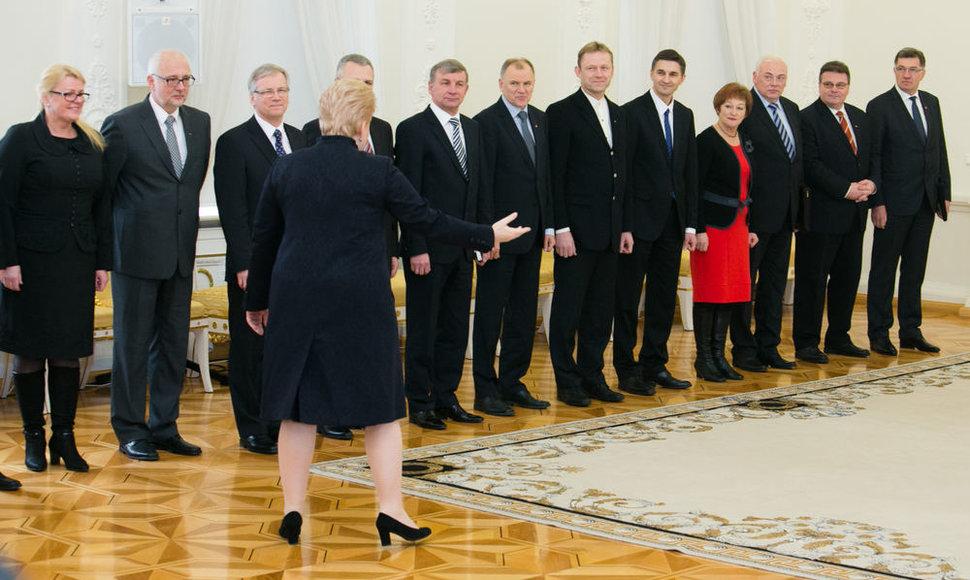In an interview published in the weekly magazine Veidas on Monday, Grybauskaitė said that the former government of Andrius Kubilius came to power in a difficult crisis period and it was clear that the opposition was then unwilling to take any responsibility.
"There was no competition, therefore, forecasting was far easier than it is now when we see our economy grow, even though the growth is slow. Consequently, I think there are more risks that the new government may not last the whole term," she told the magazine.
In comment of the inclusion of the Labor Party into the Cabinet despite her objections, the president said that the Social Democratic Party took full responsibility, and the party's leader Algirdas Butkevičius was appointed prime minister.
"Yes, the government includes members of the Labor Party, but they do not come from the party's activists, some of them represent the academic community. I and the prime minister had to serve as a filter to allow less politically-engaged and more professional people into the government, and we managed to achieve this," the president said.
Grybauskaitė said that her post-election statement in support of the ruling majority without the Labor Party meant that she alone took the blow and demonstrated her moral and political stance.
"I had to take the blow all by myself, but I have no regrets, it was my moral and political position I am willing to restate again, should the situation repeat itself. We managed to avoid defendants in the post of the parliament speaker, we managed to prove at the Constitutional Court that vote rigging should not be tolerated and be considered a crime. We managed to highlight and show people the situation and start clearing the country's political system off the pollution," she added.
After the second round of the October general elections, Grybauskaitė said that the Labor Party could not participate in the government. However, after the Social Democrats stood their grounds, she approved the Cabinet with ministers delegated by the Labor Party.
The Labor Party and its leader Viktor Uspaskich stand charges in the so-called black bookkeeping case. Prosecutors say the party organized fraudulent bookkeeping between 2004 and 2006, failing to include more than 25 million litas (EUR 7.3m) in income in its books.
Uspaskich pleads not guilty, saying the case was political in character. After parliament recently revoked the legal immunity of three of Labor MPs, the next court hearing is scheduled for 10 January.












